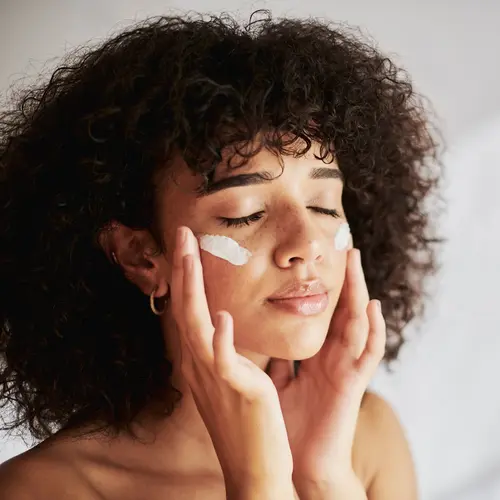Everyone wants smooth, radiant skin. What you eat can bring you closer to that goal. While there is no magic food that whisks the wrinkles away, the basics are simple. And chances are, you know them by heart:
- Go for items that are naturally jammed with nutrients, like fruits, veggies, whole grains, nuts, fish, and other types of lean protein.
- Change things up. Go for a variety of foods, so you get all the vitamins and minerals you need.
- Think beyond the plate. Sleep, exercise, and sunscreen still count, no matter what you eat.
"All of these things will help you look and feel younger," says dietitian Elisa Zied, author of Younger Next Week.
Ready to get specific about what to put on your grocery list? These seven foods are a great place to start.
1. Oats
"I recommend complex carbohydrates like oats because they're low-glycemic," says New York dermatologist Debra Jaliman, MD, author of Skin Rules.
By "low-glycemic," she means foods that don't spike your blood sugar like refined breads, rice, and pasta can. "High-glycemic foods are known to cause acne and wrinkles," Jaliman says.
Oats also have a natural plant chemical that helps prevent damage to skin cells and soothes skin irritation.
Also try: other whole grains such as shredded wheat, barley, brown rice.
2. Oranges
These are loaded with water, so they hydrate your skin and your cells, Zied says. One large orange is an excellent source of vitamin C, which helps make collagen -- and that, in turn, helps keep your skin supple.
In general, vegetables and fruits are great for your skin. Go for lots of colors so you get a variety of nutrients.
Also try: pink grapefruit, tomatoes, parsley.
3. Avocados
These are filled with a healthy type of fat, monounsaturated fat, which helps your skin stay hydrated, Zied says. That same healthy fat can also help you absorb some vitamins and nutrients that your skin needs.
Try replacing high-fat salad dressings and mayo with avocado. "It gives you a lot of flavor and texture, and you don't need much to feel satisfied," Zied says.
Also try: olive oil, walnuts, macadamia nut oil.
4. Lean Beef
"Lean beef, such as top sirloin, is a great way to get high-quality protein," Zied says. Protein helps build collagen.
Have a 2- to 4-ounce serving just two to three times a week, she says. You can enjoy different kinds of lean protein on other days.
When you cook beef, flip it often. "Cooking it over super-high heat until it's crispy and charred creates chemicals that will undo all of the anti-aging properties of the beef," Zied says.
Also try: eggs, chicken, tofu, beans, fish.
5. Brussels Sprouts
These are a great source of the skin-friendly vitamins A and C, as well as folate.
Their vitamin C promotes collagen. And while you still need to use sun protection, vitamin A and folate may help prevent sun damage.
If you remember Brussels sprouts with dread because you had them boiled when you were a child, take heart: You can roast them with a drizzle of olive oil and find them much tastier.
Also try: kale, collard greens, broccoli, cauliflower.
6. Salmon
This fish is one of the best ways to get healthy omega-3 fats in your diet. Some studies have suggested that omega-3s, especially from fish, may keep skin cancer cells from growing and spreading.
Aim for at least two 3-ounce servings of fish each week. Enjoy it grilled with a whole-grain side dish like brown rice or barley salad.
Also try: flax and chia seeds, walnuts, mackerel, sardines, fortified milk, eggs.
7. Grapes
Resveratrol, which comes from the skin of grapes, counters inflammation, Jaliman says. "Many people think it slows the aging process, plus it may fight the effects of UV light and sun damage. But you still need to use your sunscreen."
Also try: boiled peanuts, cocoa powder.


